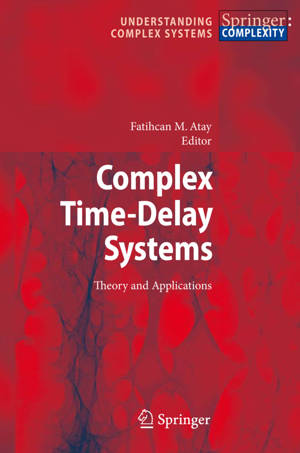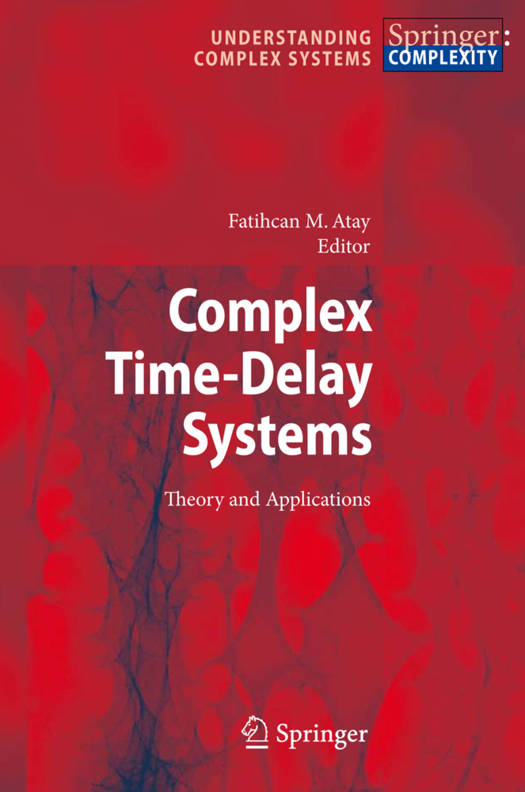
Bedankt voor het vertrouwen het afgelopen jaar! Om jou te bedanken bieden we GRATIS verzending (in België) aan op alles gedurende de hele maand januari.
- Afhalen na 1 uur in een winkel met voorraad
- Gratis thuislevering in België vanaf € 30
- Ruim aanbod met 7 miljoen producten
Bedankt voor het vertrouwen het afgelopen jaar! Om jou te bedanken bieden we GRATIS verzending (in België) aan op alles gedurende de hele maand januari.
- Afhalen na 1 uur in een winkel met voorraad
- Gratis thuislevering in België vanaf € 30
- Ruim aanbod met 7 miljoen producten
Zoeken
Complex Time-Delay Systems
Theory and Applications
€ 111,95
+ 223 punten
Omschrijving
One of the major contemporary challenges in both physical and social sciences is modeling, analyzing, and understanding the self-organization, evolution, behavior, and eventual decay of complex dynamical systems ranging from cell assemblies to the human brain to animal societies. The multi-faceted problems in this domain require a wide range of methods from various scienti?c disciplines. There is no question that the inclusion of time delays in complex system models considerably enriches the challenges presented by the problems. Although this inclusion often becomes inevitable as real-world applications demand more and more realistic m- els, the role of time delays in the context of complex systems so far has not attracted the interest it deserves. The present volume is an attempt toward ?lling this gap. There exist various useful tools for the study of complex time-delay systems. At the forefront is the mathematical theory of delay equations, a relatively mature ?eld in many aspects, which provides some powerful techniques for analytical inquiries, along with some other tools from statistical physics, graph theory, computer science, dynamical systems theory, probability theory, simulation and optimization software, and so on. Nevertheless, the use of these methods requires a certain synergy to address complex systems problems, especially in the presence of time delays.
Specificaties
Betrokkenen
- Uitgeverij:
Inhoud
- Aantal bladzijden:
- 328
- Taal:
- Engels
- Reeks:
Eigenschappen
- Productcode (EAN):
- 9783642023286
- Verschijningsdatum:
- 21/02/2010
- Uitvoering:
- Hardcover
- Afmetingen:
- 162 mm x 27 mm
- Gewicht:
- 709 g

Alleen bij Standaard Boekhandel
+ 223 punten op je klantenkaart van Standaard Boekhandel
Beoordelingen
We publiceren alleen reviews die voldoen aan de voorwaarden voor reviews. Bekijk onze voorwaarden voor reviews.








